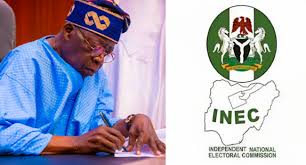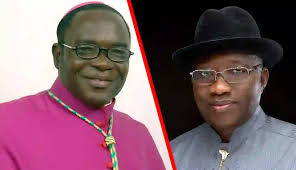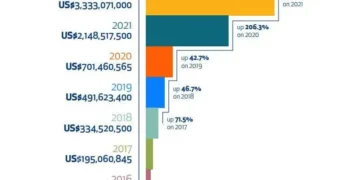Abuja, Nigeria — A potent civil society voice has broken the silence on electoral reform in Nigeria. The Civil Society Coalition under the Alliance of Civil Society Organisations for Expansion of Electoral and Democratic Space (ACCESS), through her spokesperson Kenneth Eze who also doubled a s the Executive Director, Speak Out Africa Initiative (SOAI) in Abuja, delivered a firm message to President Bola Ahmed Tinubu GCFR saying: “Tell Nigerians your electoral reform agenda”, don’t keep us waiting anymore – time is running out.
The call comes amid widespread frustration that, more than two years into his presidency, President Tinubu has offered no clear roadmap on the sweeping electoral changes many Nigerians believe are essential to credible elections in 2027.
In a press briefing held in the Nation’s capital, the coalition denounced what they described as the “body language of silence” from the presidency and the APC — a posture that, they argued, suggests a reluctance to heed the clamour of ordinary Nigerians for transformation in the electoral space. The pressure is mounting: civil society, media, political actors, and grassroots citizens have repeatedly demanded reforms, yet tangible proposals remain elusive.
In this report, we present the full contours of their demand, situate it in the context of the embarrassing lapses of the 2023 general elections, examine why reform is urgent ahead of 2027, and lay out what is expected of the President if he is to salvage trust and legitimacy in the electoral process.
“For too long, Nigerians have shouted for electoral reform. The 2023 experience exposed how fragile and flawed our system is. We are weary of promises, platitudes, and reticence. President Tinubu must show leadership — not through mere nods in corridor conversations, but by putting before Nigerians a concrete, timely, and bold electoral reform agenda.”
Eze recounted that civil society organizations have consistently held dialogues, town halls, policy forums, and campaigns, putting forward proposals on the needed overhaul of the electoral framework — from laws to the conduct of the election management body. Yet, he lamented, these voices have gone largely unanswered by the central power.
“The body language we see—not even a whisper about reform in public could be misconceived for apathy. If the ruling party is unwilling to contemplate reform, what hope for Nigerians come 2027?”
Eze emphasized that 2027 cannot be another replay of 2023. On the other hand, He reminded the President that as the search for a new INEC Chairman is underway, now is the moment to anchor reform, not sideline it. He insisted: Nigerians will not accept anything less than real, structural, non-partisan transformation in the Election Act, in INEC’s architecture, and in the accountability mechanisms that govern elections.
To make his point, Eze leaned heavily on the many failings observed in the 2023 general elections. The 2023 experience is more than a reference — it is a warning sign, a cautionary tale of how overpromising and underdelivering in electoral integrity can corrode trust. A recapitulation of some of the notable lapses, drawn from observers, media reports, academic assessments, and civil society post-election reviews.
1. Failure of Electronic Transmission of Results & IReV System
One of the most hyped innovations of 2023 was the use of technology to transmit results electronically from polling units via the INEC Results Viewing (IReV) portal. It was meant to reduce manipulation at collation centers, increase transparency, and allow citizens to track results in real time.
But the system largely failed. Many polling units did not transmit results electronically. In many states, results were posted manually instead of via IReV, or the electronic uploads were delayed, inconsistent, or manipulated. The failure to use the very system promised shattered public confidence. In fact, in numerous polling units and local government areas, the results never appeared on the portal at all.
Observers argue that the failure emanated from inadequate infrastructure, poor logistics, unreliable electricity and connectivity, lack of training, and perhaps deliberate undercutting. But regardless of the cause, the effect was the same: a big promise left unfulfilled, with a vacuum that allowed manipulation in collations.
2. Delays in Collation, Announcements & Manipulation at Collation Centers
Beyond polling unit results, there were widespread delays in collation, in amplification, and in announcement of winners. In some states, collation stretched into the early hours of the next day, sparking suspicion and opportunity for interference.
In many state and national collation centers, result sheets from polling units were physically carried and collated manually, sometimes without electronic backup, leading to mismatches, lost sheets, substitution, and deletions. The lack of standardization in how collation was done across states created huge discrepancies, and in several cases, losers challenged results due to these inconsistencies.
3. Voter Suppression, Intimidation & Violence
Election observers reported multiple incidents of intimidation, electoral violence, and suppression in the 2023 cycle. In some communities, thugs and partisan actors disrupted voting, chased away voters, or interfered with polling materials.
Particularly in conflict-prone or unstable regions, security challenges impeded deployment of materials and personnel, disenfranchising eligible voters. In some places, polling units were canceled or voters were forced to vote in alternative locations far away — all of which depressed turnout or skewed the playing field.
4. Late Arrival or Non-Arrival of Material and Ad Hoc Staffing
In many polling units, election materials including ballot papers, result sheets, INEC gadget kits, accreditation machines, Bimodal Voter Accreditation System (BVAS) devices — arrived late or not at all. That meant polling stations opened late or never opened. Some polling units had to close before all voters queued could vote. Some units lacked adequate officials, with ad hoc assignments made last minute.
These logistical failures disadvantaged voters, especially in remote or underserved areas often the same areas more vulnerable politically.
5. Multiple Voting, Over-Voting & Ballot Box Stuffing
In many cases, reports surfaced of over-voting (i.e., number of votes exceeding accredited voters), multiple voting, or ballot box stuffing, especially in the collation stage where unmonitored manual processes reigned. The lack of cross-checking and independent verification mechanisms made detecting or challenging these acts harder.
6. Vote Buying, Bribery, and Financial Influence
Vote buying, inducements, logistical bribery (funding transport, meals, etc.), and outright monetary enticements of voters were rampant. Given Nigeria’s deep income inequalities, such financial pressure can heavily sway voter choices.
Observers flagged that the election legal framework and enforcement mechanisms did little to deter these practices, and the punitive clauses (where they exist) are rarely enforced in real time.
7. Legal Technicalities, Forum Shopping & Weak Post-Election Resolution
Numerous electoral disputes ended at tribunals and courts. However, the legal terrain and court pronouncement were largely on technical grounds rather than substantive examination. Forum shopping, inconsistent judicial precedent, and fragile stare decisis eroded faith in post-election justice. Thus, even when malpractices were evident, many were never effectively redressed or reversed.
8. Lack of Independence, Adequate Funding & Capacity Constraints at INEC
INEC, as the electoral umpire, was heavily constrained by limited autonomy, funding deficits, political interference, and capacity weaknesses. Many of its decisions, from staffing to procurement, were alleged to be influenced by political actors. The commission’s dependence on external contractors and logistical partners undermined its internal strength.
Moreover, the absence of strong internal accountability and audits within INEC allowed for procurement irregularities or leakages in its processes.
These failings, cumulatively, forced many Nigerians to conclude that 2023 was a step backward in electoral integrity. In his address, Kenneth Eze used these lapses as a justification for why the silence from the presidency is unjustifiable.
Why Electoral Reform Must Happen Now — Stakes for 2027
When an election cycle is over, many hope for reform before the next one. But Eze contends that waiting too long is dangerous and that 2025–2026 is the window for meaningful change. Eze and allied civil society actors hold several arguments in favour of immediate reform:
1. Trust Is at a Low Ebb — Must Be Restored Before Campaigns Begin
If citizens enter a campaign season believing the system is rigged or faulty, voter apathy, cynicism, or disengagement will increase. To avoid a legitimacy crisis in 2027, the reforms must come early, not as an afterthought.
2. Defining Rules Before Parties Manipulate Them
Parties and candidates often adapt their behaviour to the known rules. If the rules remain vague until late, contesting actors will manoeuvre loopholes or preemptively exploit grey areas. Clear rules on technology, accreditation, result transmission, and dispute resolution must be locked in.
3. Building Institutional Capacity Takes Time
Reforming the law or appointing new leadership is one thing; equipping INEC, training personnel, rolling out technology, and ensuring state-level preparedness takes months or years. Starting now gives buffer time to pilot, test, and refine systems.
4. Preventing Recurrence of 2023 Failures
The vulnerabilities exposed in 2023 will remain unless addressed. If reforms are delayed, the same failures (non-transmission, late collation, violence, etc.) will recur, potentially more brazenly.
5. Legitimacy & International Perception
Nigeria is Africa’s biggest democracy by population and a regional anchor. Its credibility internationally — for investors, diplomatic relationships, and donor confidence — is linked to how it conducts its elections.
6. Political Pressure, Momentum & Public Demand
There is a growing momentum from media, CSOs, youth groups, and citizens demanding reform. If the presidency misses this window, reform may be derailed by political fatigue, partisan resistance, or distractions.
7. The New INEC Leadership Opportunity
Because the process of appointing a new INEC Chairman is active, the presidency has a rare opportunity to embed reform in leadership selection — one that is more independent and in tune with structural change.
Thus, Eze warned: “If the President continues to sit silent, he risks being seen as an obstacle, not a reformer.”
What Nigerians Expects: A Reform Agenda for Tinubu to Embrace
Eze was not merely critical; he offered prescriptions. These are the key pillars of the electoral reform agenda expected to adopt — those which, in Eze’s view, would restore credibility and satisfy the public demand:
1. Revised Electoral Act / Legal Reform
- A comprehensive amendment of the Electoral Act to strengthen enforcement, set clear rules for electronic transmission, define sanctions for non-compliance, and streamline dispute mechanisms.
- Codify mandatory electronic transmission from polling units, with automatic invalidation or nullification of results from non-transmitting units unless a valid exception is recorded.
- Strengthen clauses against vote buying, inducements, bribery, and financial manipulation, with real-time enforcement and fast-track courts.
- Empower civil society, media, and election observers with statutory rights to challenge and audit results.
2. Restructuring INEC: Independence, Autonomy & Internal Controls
- Ensure INEC’s financial autonomy, independent budgeting, and direct access to its funding without executive interference.
- Reform INEC’s governance structure to include non-partisan experts, audit oversight, and internal investigative arms.
- Strengthen procurement, logistics, and supply chain systems to reduce external dependence, leaks, or corruption.
3. Naming a Non-Partisan INEC Chairman & Leadership Selection
- The process of picking a new INEC Chairman must be transparent, merit-based, and immune from partisan manipulation.
- The nominee should not be a card-carrying politician or recent participant in partisan politics.
- Senate confirmation must include public hearings, civil society vetting, and scrutiny of the nominee’s integrity and impartiality.
Eze emphasized that no one appointment or minor tweak will convince Nigerians; the entire ecosystem must be re-engineered to reflect accountability, neutrality, and fairness. He declared: “Nigerians will not accept anything less than the right thing.”
In his closing words, Eze said: “Tell Nigerians your reform agenda — or risk being remembered as the leader who refused to listen.”

























